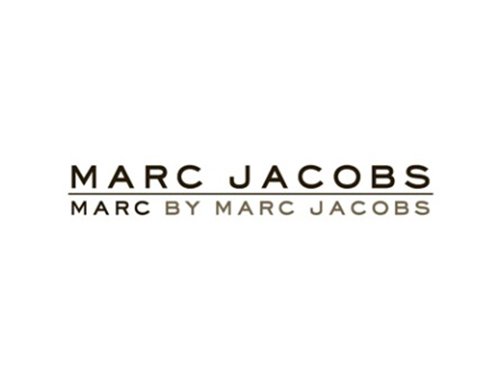What Frame material and hinges to pick?
What’s the best material for eyeglass frames?
Choosing the right frame can significantly improve your comfort and frame your look. Frames come in plastic, metal, and more alternative options like wood – all differ in price, durability, flexibility, and weight. Each frame material has its strengths, and you can combine frame materials such as a frame with plastic surrounding and lenses, and a titanium temple piece.
Metal eyeglass frames
Frames made from metal, titanium, or a mixture of metals are well equipped to wear and tear. Types of metal frames include:
- Titanium frames are durable, light-weight, extraordinarily resilient and sturdy. They come in a variety of colours and are a good option for children, people prone to allergies (they are hypoallergenic), or those who are rough with their frames.
- Monel is a mixture of metals. It’s usually less expensive than other metals. Depending on the quality of plating used, it can cause allergic skin reactions with people who have sensitive skin (however, most frames come with a protective coating). Monel frames are quite flexible and corrosion-resistant.
- Beryllium is a cheaper metal than titanium. It’s flexible, durable, strong, and light-weight. Beryllium frames are easy to adjust and are corrosion-resistant. Beryllium frames are an excellent choice for people who spend time around saltwater.
- Stainless steel frames are light-weight and strong. Not as light-weight as titanium, but a cheaper option to other metal frames. Stainless steel is flexible and corrosion-resistant and is available in matte, polished, and a glossy finish.
- Flexonis known for its flexibility. An alloy of titanium, it can bend back into shape after it has been twisted or turned. Flexon frames are light-weight, corrosion-resistant and hypoallergenic.
- Aluminum frames are light-weight and extremely resistant to corrosion. Aluminum is known for its unique look and frequently used in high-end, exclusive eyewear.
Plastic eyeglass frames
Plastic frames come in a variety of colours and styles. Cheaper than metal frames, frames from plastic are a more popular choice, even though they typically are harder to adjust and over time some plastics may become brittle. Types of plastic frames include:
- Zyl is light-weight and relatively inexpensive. Zyl is available in almost any colour and is very popular.
- Cellulose acetate is plant-based hypoallergenic plastic. Light-weight, strong, and flexible, the cellulose acetate offers the widest range for rich colours and transparency.
- Optylis lighter in weight than cellulose acetate but is challenging to adjust. Optyl frames are hypoallergenic – and a good option for skin-sensitive individuals.
- Blended nylon frames are strong and light-weight. They are often used in wraparound styles, such as safety and sports glasses, because they are easy to mould.
- Propionate is a nylon-based plastic that is light-weight and hypoallergenic. Propionate is often used in sports frames as it is a highly durable and flexible material.
- Nylon is light-weight, flexible, and strong, but tends to weaken with age and become brittle. Nylon has mostly been replaced with more resilient nylon blends such as polyamides and gliamides. Nylon frames made from these materials are very resistant to hot and cold and are easy to mould into wraparound styles. Nylon is only produced in darker colours.
The hinges of eyewear
It’s not just the frames that matter when buying eyewear: The type of hinges matters too. The hinges keep your glasses together, which is why you want them to be durable and comfortable. There are three types of hooks available: standard, spring, and hingeless frames.
Standard hinges
The standard – and oldest – hinges are the most common type in eyeglasses. They are durable and easy to maintain and repair. Standard hinges have three barrels that fit into each other with a small screw. The more barrels your frame has, the more durable it is.
The standard hinges need more adjustment than flexible hinges, and you may need to visit your optician for adjustments. These may also fall off easier during physical activities or when you bend over.
Spring hinge (flex hinge)
The spring hinges are the second most commonly used hooks. They come with a small spring that provides the arms with a greater range of movement. No longer limited to a 90-degree angle, the hinges provide greater comfort and resistance to wear and tear.
The spring hinges are easy to adjust and stay better put through physical activities such as running—a good choice for people with an active lifestyle or children. However, the hinges are usually more challenging to repair.
Hingeless frames
The minimalistic hingeless frames are the newest addition to hinges. The lack of hinges, screws, and barrels makes them a trendy option. Glasses with hingeless frames are made from strong material like titanium and tailored to fit the individual head. Hingeless frames are a popular choice for people in sports. However, the sleek, durable, and perfectly-fitted design comes with one catch: it is hard to repair.
Come by and try out frames!
Come by and have a look at our collection. It’s best to try out the different flexibility options and materials before buying. We are more than happy to help out if you have further questions about hinges or other parts of the frames – or any general questions. Feel free to reach out to our clinics in Brampton and Mississauga.

























